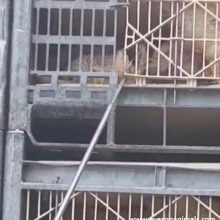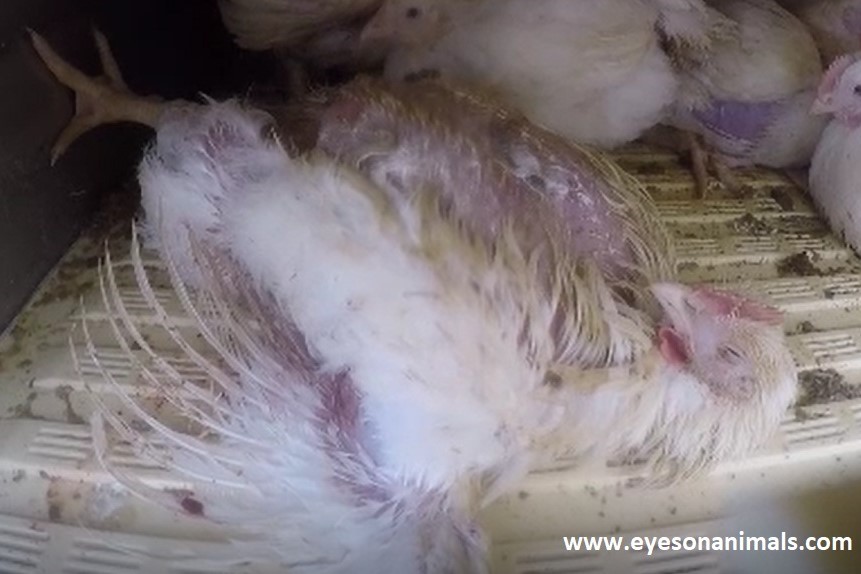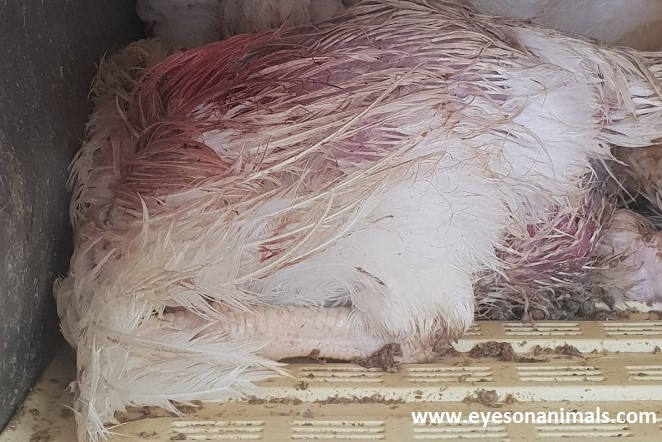During random inspections of livestock lorries on the roads, Eyes on Animals inspectors again noticed broiler chickens stuck on their backs in transport containers. One of the reasons broiler chickens are often found on their backs is because of rough loading at the poultry farm. However, it can also happen during transport when the truck takes a sharp turn or drives over a speed-bump. Because broiler chickens are so heavy and deformed (due to selective breeding for cheap large breast fillets) they cannot get back up by themselves. Once on their backs chickens have difficulty breathing and often slowly die. We also observed seriously wounded, deformed and weak broiler chickens on board.

Fortunately the new poultry containers manufactured by the companies Marel and Meyn now have access doors, but most slaughterhouses still have the old containers without any access doors. Therefore broiler chickens stuck on their back or seriously injured cannot be helped during transport. For slaughterhouses it is often not easy to switch to the newer containers with access, as those containers have been designed in a different format and will therefore not fit in the slaughter line slaughterhouses are already using. It would mean the slaughterhouses have to change their entire slaughterline too. This often is financially not feasible or interesting for them to do.
If chickens are stuck on their backs (and the driver is able to stop and actually notices it and acts), they are flipped upright by a metal rod which the driver uses to get in between the bars of the transport containers, which is stressful for the bird and also not very easy for the driver, especially not when the birds are in the back or upper level of the containers.
When chickens are wounded, even seriously wounded and showing signs of extreme suffering, even then a driver cannot do anything at all. This is actually against the law. If pigs, horses, cattle or sheep become seriously wounded during transport they must, legally, be assisted on the spot and the transporter is fined if s/he does not do so. Sadly, the welfare of poultry is largely neglected and injured chickens are left to suffer.
Eyes on Animals is of the opinion that transport containers- and crates without access need to be phased out. Access doors are not only essential to help birds in need but also mandatory since many years now (Council Regulation (EG) Nr. 1/2005, Annex I, Chapter II, 1.1f). We will again put this topic to the attention of authorities, industry and manufacturers of trucks and crates.



